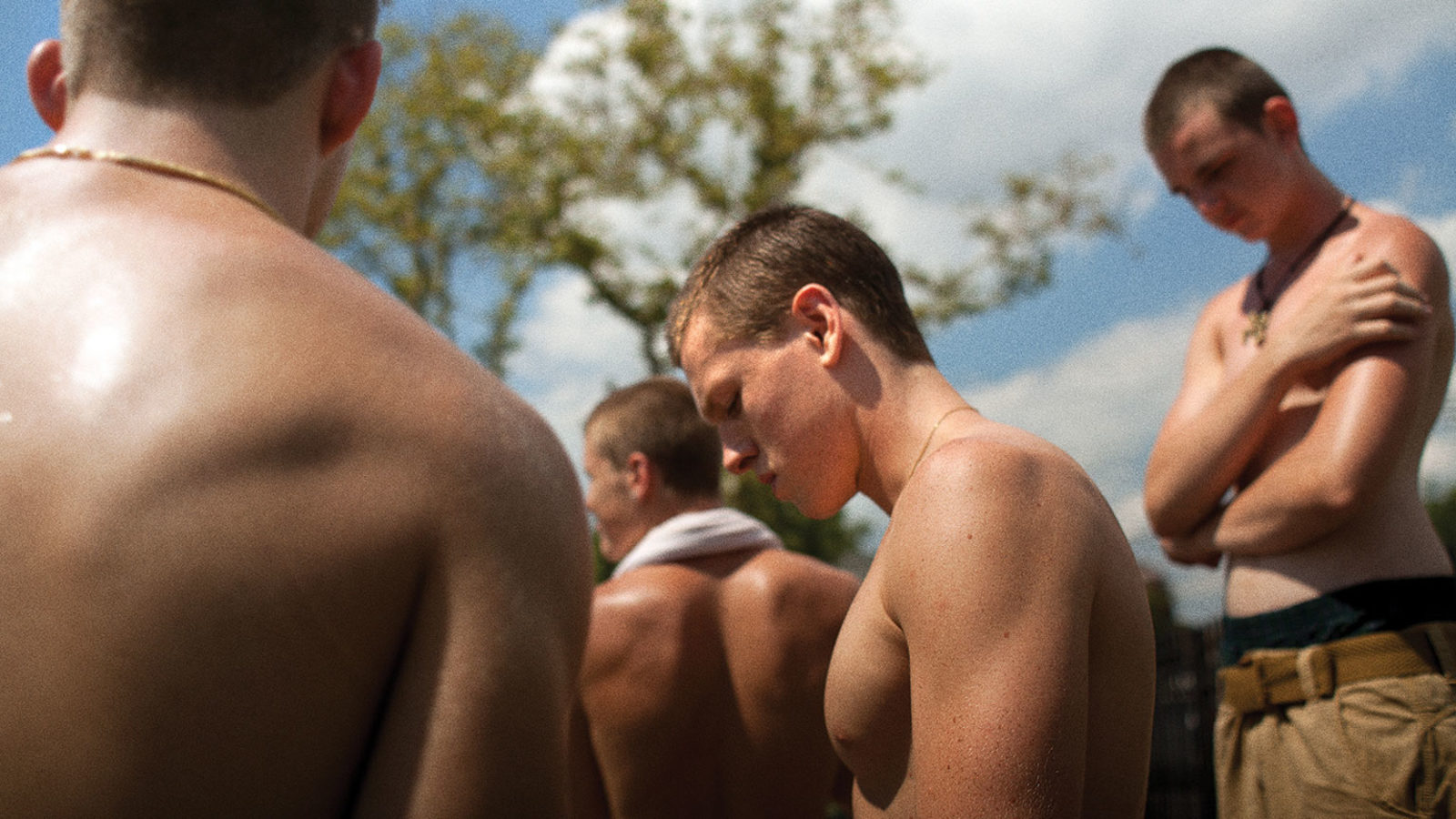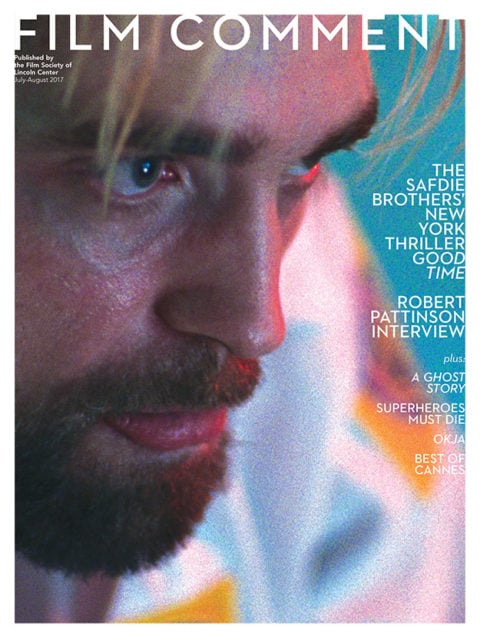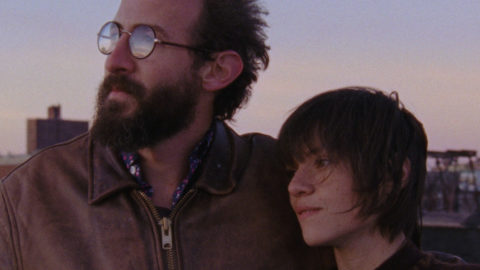By Michael Koresky in the July-August 2017 Issue

Review: Beach Rats
(Eliza Hittman, USA, Neon, Opens August 25)
I don’t really know what I like” is a recurring line spoken by closeted 19-year-old Frankie, the protagonist of Eliza Hittman’s Beach Rats, and while the words are a shield of armor the boy wears, they also speak a truth greater than he probably even knows. He says these words in response to queries about his sexual preferences and proclivities, usually asked by older men he meets while displaying himself on webcam on the site Brooklyn Boys. What constitutes his “type” may be unclear—as he says at one point, he engages mostly with middle-aged men because it’s unlikely they’ll know his friends—but there is one thing Frankie clearly knows that he likes: to be the recipient of these men’s appreciative gazes. The film’s first images, of Frankie taking isolated body-shot selfies in his darkened bedroom illuminated by his iPhone flash—quick cuts to chest, bicep, armpit—firmly establish him as willing object, hungry to be seen as a figure of eroticism and therefore something both more and less than what he sees himself as in his daily life.

From the July-August 2017 Issue
Also in this issue
That life, captured with ethnographic and empathetic precision by Hittman, exists firmly within circumscribed social and geographical boundaries. As she proved in her remarkable 2013 debut It Felt Like Love, the director, a Flatbush native, is preternaturally skilled at immersing herself in the interior world and exterior details of sexually driven, beautifully confused teenagers in Brooklyn neighborhoods that function with their own enclosed ecosystems. In the earlier film, set in working-class Gravesend, the pubescent Lila navigated a frightening, hypersexualized environment that has no interest in nurturing the nuances of her emerging libido; in Beach Rats, which feels less like a canny companion piece to that film than a curious further investigation of its themes, Frankie is too firmly ensconced in his staunchly heterosexual day-to-day in coastal Sheepshead Bay to allow his erotic urges to explode into it. Instead he spends his summer days and nights getting high with his tank-topped, macho cohorts; trolling the Coney Island boardwalk; avoiding his concerned working mom (Kate Hodge); and politely yet anxiously courting the increasingly impatient Simone (Madeline Weinstein), who is clearly onto something when she tells Frankie that he has “sad blue eyes” before a fumbling bedroom fail. Further distracting him is his father, slowly dying from cancer in the living room; that this both profoundly affects Frankie and also gives him a reliable and ready excuse for his inability to perform for Simone is just one complex detail in Hittman’s nimble, surprising screenplay, which makes contradictory emotions always perfectly legible. This is especially true in the film’s strange and unsettling final act, in which Frankie’s need to reveal his true self manifests in such a way as to blur the line between victim and aggressor.
Beach Rats is a film of constant anxiety and agitation—in other words a pretty fair approximation of the teenage mindset—in this case further shaken by the stigma still associated with homosexuality. Simone’s casual comment to Frankie that “it’s hot when two girls make out, but when two guys make out it’s gay,” after he transgresses a boundary by daring to even bring up the thought, is just one example of the lie that we live in a “post-gay culture.” Despite his exhibitionistic streak and chiseled, model-ready torso, Frankie is constantly hiding. His outsider status is emphasized by Hittman’s casting of 20-year-old British actor Harris Dickinson in the role. Though he’s agile with a Brooklyn accent, Dickinson at first seems to stick out: the fair-haired, tattoo-less actor is markedly different—and also more conventionally beautiful—than his buddies, played forcefully by a trio of nonprofessionals (David Ivanov, Anton Selyaninov, and Frank Hakaj) recruited from the area. But as the film wears on, and Frankie’s desperation to collapse his divided worlds into one becomes more acute, Dickinson’s almost ethereal difference—those “sad blue eyes”—becomes intrinsic to our understanding of the character, and heartbreaking. There’s a moment where Frankie, surreptitiously meeting with an older hookup in a forested, beach spot under cloak of night, wades into the water; as he progresses, the camera stays behind, and he seems to all but dissolve into inky blackness. Hittman is rapidly becoming a crucial American portraitist of the fragility of youth.





